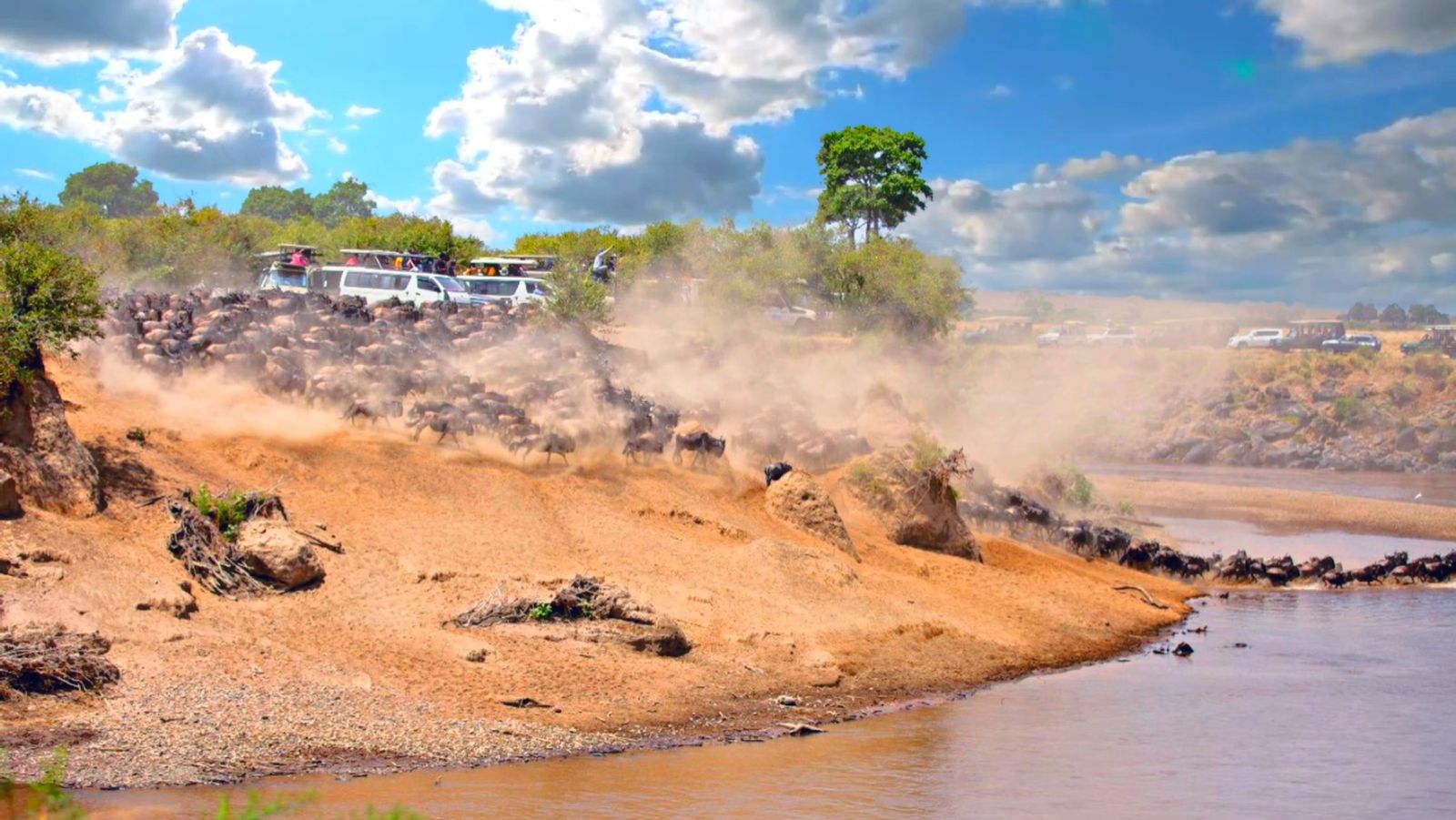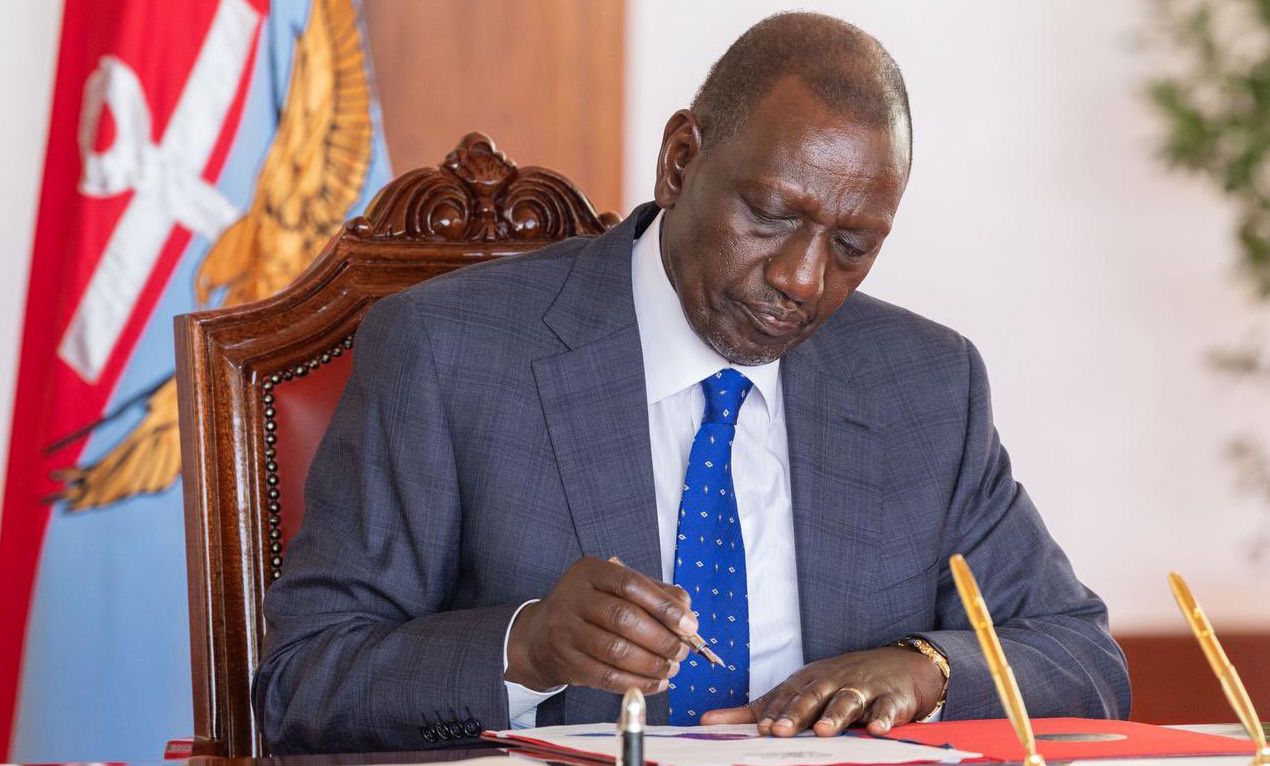Kenya Wildlife Service (KWS) has responded to concerns circulating on social media alleging that the Ritz-Carlton Safari Camp is obstructing wildebeest migration routes and river crossings within the Maasai Mara National Reserve.
In a statement released on Thursday, November 27, KWS sought to clarify the situation and provide scientific evidence regarding the integrity of migration corridors in the reserve.
"The wildebeest migration is a globally celebrated natural spectacle, recently recognized by the World Book of Records and World Tourism Market as the world's greatest annual terrestrial wildlife migration and Africa's leading tourism destination respectively," KWS stated.
In light of the current concerns, the Kenya Wildlife Service provided several clarifications.
KWS confirmed that the Ritz-Carlton safari camp is situated within a designated tourism investment low use zone, as provided for in the Maasai Mara National Reserve Management Plan, 2023-2032.
Read More
The service emphasized that the zonation system allows for controlled tourism development in specific areas.
According to KWS, the integrity of wildebeest migration corridors has been scientifically verified through extensive research spanning over two decades. The movements of migrating wildebeest in Maasai Mara have been mapped using more than two decades of GPS collar data collected from migration wildebeest between 1999 and 2022.
The comprehensive dataset includes GPS tracks from over 60 collared migratory wildebeest, with each GPS fix typically representing herds ranging from 2,000 to 100,000 animals.
The wildlife service acknowledged that several images, pictures and narratives circulating online relate to historical events that were addressed in previous years around 2018 and 2020.
KWS assured the public that all ecological, environmental, and regulatory requirements were thoroughly met and validated prior to approval for the Ritz-Carlton Safari Camp.

The KWS statement comes in response to concerns that have been raised online.
A viral video circulated on social media in late November showing wildebeest appearing to turn back during their migration, with critics alleging that the safari camp was blocking their path.
In the footage, dozens of wildebeest could be seen hesitating at what looked like a human-made barrier, while some retreated the way they came.
Also visible were people on the property, seemingly within what used to be an open wildlife migration corridor, chasing the animals away.
The video reignited criticism from conservationists and local leaders who have argued that the development disrupts a vital corridor used by migrating wildebeest between the Maasai Mara and Tanzania's Serengeti.
Director of the Maasai Education, Research and Conservation Institute, Meitamei Olol Dapash, filed a lawsuit in August 2025 challenging the development.
The legal challenge accused the lodge developer and Kenyan authorities of failing to conduct a proper Environmental Impact Assessment.
Critics also argued that the development violates the Maasai Mara National Reserve Management Plan, which calls for a pause on new tourism accommodation developments until 2032.






